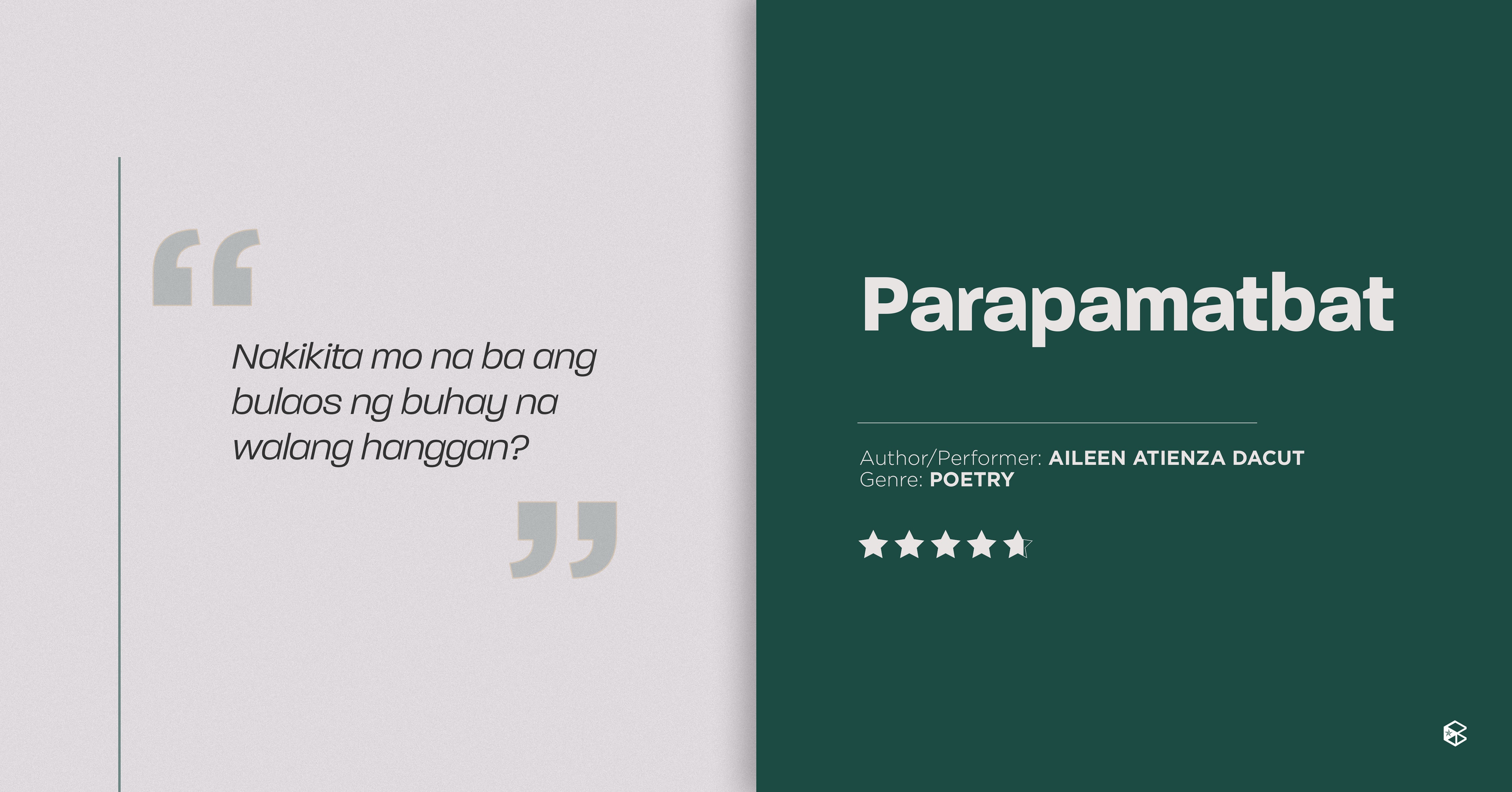Regardless of form, loss is no foreign concept to us. When faced with the challenge of accepting that they will never return to us, it is during these times we need to be stronger than ever. Aileen Atienza Dacut puts this message into gripping stanzas in her poem “Parapamatbat,” which was published in 2021 on the website of TLDTD, a biannual journal for Filipino poets and poetry.
A former editor for her high school publication, Dacut taught Filipino at the University of the East Manila. She is now finishing her master’s degree in Filipino at the Polytechnic University of the Philippines.
People of prayer
Though the piece is primarily written Tagalog, the title is of a slightly different tongue. Parapamatbat finds its origins in the Philippines’ Waray dialect, meaning “one who leads the prayer” or a kind of high priest. The word is also associated with elderly women who take up these roles, bearing a prayer book in hand to guide them. Throughout one’s reading, Parapamatbat becomes so much more than its original meaning as it is intricately reshaped by the author’s themes of death, personal battles, and hope.
The piece begins with a Bible verse taken from St. Paul’s letters to the Ephesians. A fitting prelude to the piece, the biblical excerpt orders the reader to wear the armor of God to successfully combat the devil’s intentions. It goes on to warn us that our enemies are not people, but rather those in power and authority, and the evil forces of a spiritual realm.
Upon closer reading, the answer is not clear. How do we fight intangible forces? More importantly, what is this heavenly armor?
When they go, who do we blame?
On March 29, a plane bearing a patient sick with a mysterious illness crashes while on its way to possibly to find a cure. Days before that, on March 11, a child calls out to heaven in hopes that his prayers can spare his dying father.
The first two stanzas of the poem, though simple in its narrative, paint a painful image of death and loss. A similarity between them is the presence of religious characters, laying the basis for the rest of the poem that death does not lie in human hands, but rather in those of a higher being. The questioning reader may note this as something to keep in mind as they continue to digest the themes of loss and grief.
The succeeding stanzas are just as heart-wrenching. The author captures the frustration one feels when a loved one has left them too soon: squeezing one’s rosary beads as tears fall from their eyes. But then we are asked where we find comfort when temple doors are closed, when we are forbidden by distance to personally be with one’s god. Anyone would begin doubting whether or not someone up there is actually listening to their cries of help. Amidst hopeless, it is shown that the urge to give up on our future becomes easier. It is as if we succumb to death alongside the one who left us in life. As we vicariously experience this frustration through Dacut’s storytelling, she punctuates this feeling by asking,
“Totoo ba ang langit?”
In line with Christian scriptures, a person’s hour of death is in the hands of the Lord. Though one may call out to the heavens to spare our loved ones, they may find that it is ultimately useless, and so their faith, or armor, weakens. When this happens, that is when the enemy strikes as we are battling invisible and evil forces. Is it the devil that makes us ask whether heaven is real? Perhaps we as readers are the parapamatbat. Guarded by our armors of faith and our arms of prayers, we fight against hopelessness, a definite and invisible evil.
Whether you believe in a higher power or not, Dacut’s words give us a moment to reflect on what we would do to get through loss. We may cling onto our faith or on those around us to find strength. “Parapamatbat” certainly shows us that no matter what our ways of coping may be, hope will always be there for the taking.
If you wish to read “Parapamatbat,” the poem can be found here.


